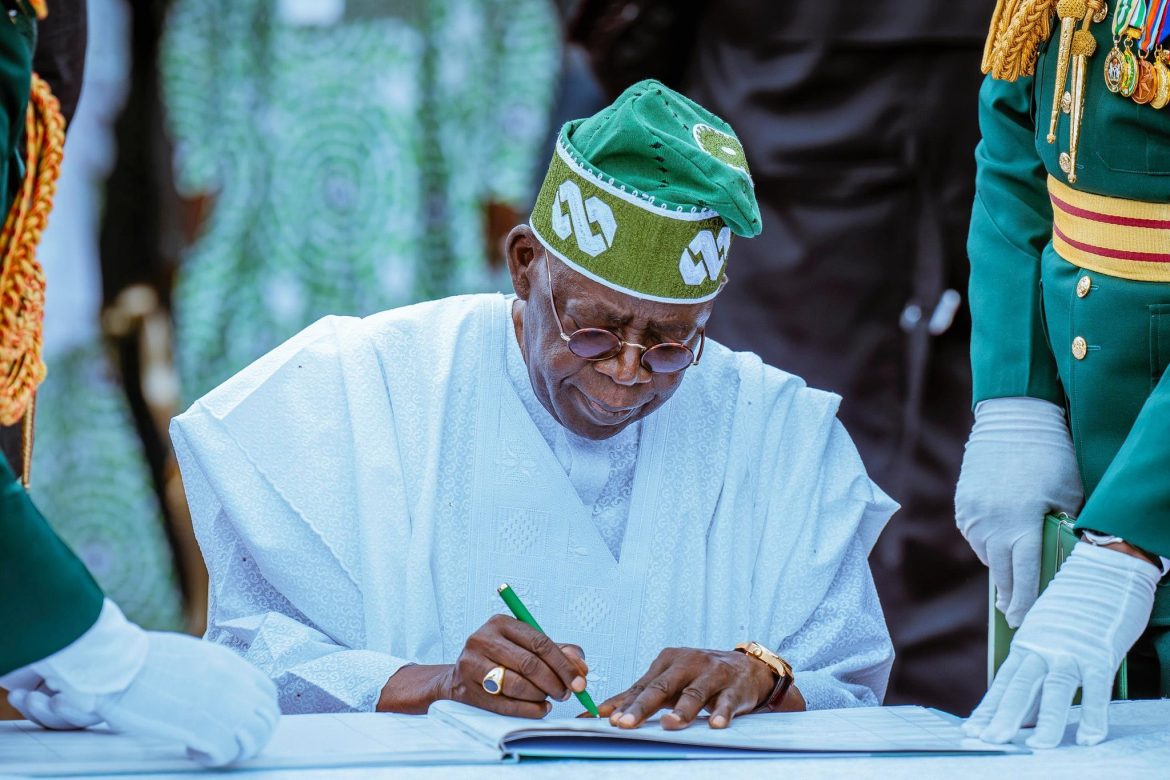535
By Lizzy Chirkpi
Nigerians have expressed mixed reactions on social media after President Bola Tinubu signed the Tax Reform Bills into law, marking a major shift in the nation’s tax system.
While signing the bills, President Tinubu emphasized that they signal Nigeria’s readiness for modern economic growth and international investment.
“We have opened the door for new economic and business opportunities. We are showing that Nigeria is truly ready and open for business. Easy in, easy out,” said Tinubu at the signing ceremony held at the State House in Abuja.
The four bills include the Nigeria Tax Bill (Fair Taxation), Nigeria Tax Administration Bill, Nigeria Revenue Service (Establishment) Bill, and the Joint Revenue Board (Establishment) Bill.
The President stated, “They will unify our fragmented tax system, eliminate wasteful duplications, cut red tape, restore investor confidence, and entrench transparency and coordination at every level.”
Some Nigerians hold different opinions regarding this new law and its direct impact on them. Here are some reactions on X (formerly Twitter) as extracted by Pointblanknews.news concerning the law:
@TheCyber_sol: “Anything tax, Tinubu is active. This man is not just a bad president; he’s a thief and he is wicked. It’s a lovely idea, but he’s generating more money to steal. It’s insane.”
@digitalaom: “Very confused set of people. As it stands, point 3 does not make sense in the context of Nigeria’s current minimum wage of ₦70,000 per month (₦840,000 annually). The exemption threshold of ₦800,000 annually is too low to cover minimum wage earners, potentially subjecting them to income tax despite the reform’s pro-poor intent.”
@Collinszagaa: “Minimum wage in Nigeria is ₦70k. Number 3 said low-income earners of ₦800k annually will not be taxed. ₦800k/12 = ₦66,667. This means low-income earners will be taxed. 

 ”
”


 ”
”@Opemipo_162: “He already allowed for the corporate taxes to go up 30% and high earners to be 25%. What else do you all want? If it’s too low, you would complain; if it’s too high, you would still complain. Small businesses have been exempted, and low earners as well – isn’t that enough?”
Thursday’s signing comes nearly two years after President Tinubu appointed Mr. Taiwo Oyedele, a Fiscal Policy Partner and Africa Tax Leader at PriceWaterhouseCoopers, as committee chairman. Recall that on July 7, 2023, the President approved the establishment of a Presidential Committee on Fiscal Policy and Tax Reforms.
However, the bills faced resistance at the National Assembly and among some state governors, who initially rejected their passage.
At the NASS, the bills sparked heated debate, particularly around the revenue-sharing structure. Meanwhile, Governors from the North mostly opopposed the bills, warning that a shift toward derivation-based allocations, especially with VAT, could tilt fiscal balance in favor of southern states with stronger consumption bases.



